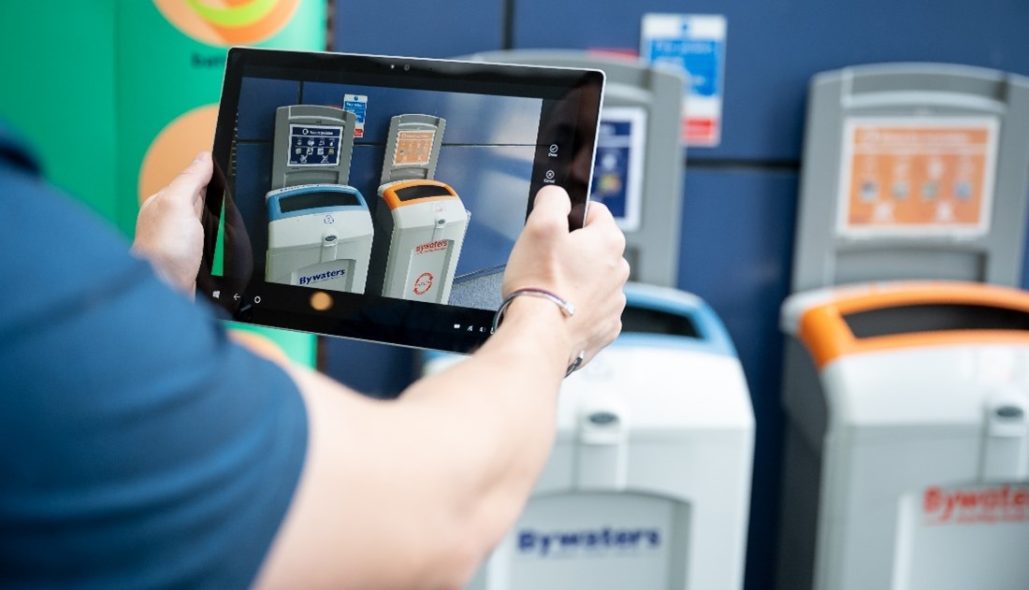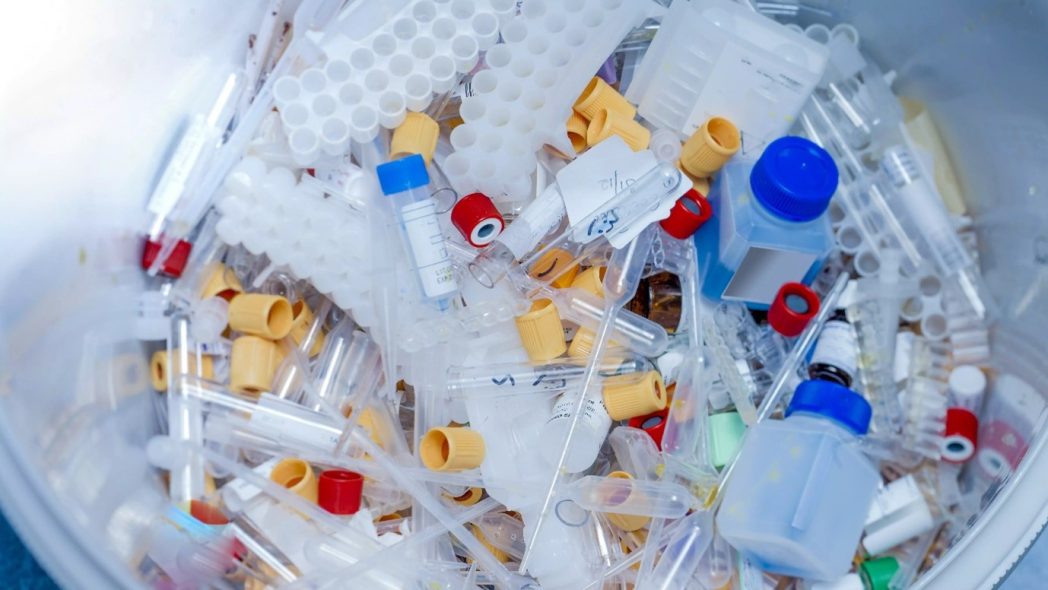Contact us today for your Free Quote
Ever peeked in your company’s overflowing bins and wondered, ‘Are we literally just throwing money away?’ you’re not alone – And there’s a lot more to this!
In London’s thriving business landscape, being green is no longer just a trend – It has some major perks in business; it also showcases your eco-friendly credentials to secure new customers, allows you to access better loans, snag prestigious awards, and even cash in on selected grants… And more importantly, this is all in addition to reducing your waste, improving your recycling, and making your business contribute to society’s sustainability.
So what’s the best way to achieve all these green perks? A Waste Audit is a powerful first step to make this a reality.
As London’s premier recyclers and waste consultants, Bywaters understands the critical role waste audits play in a business’s sustainability journey. That’s why we wrote this article to inform you on the matter.
In this article, we’ll demystify what a waste audit is, unravel the process behind it, and showcase real-life examples from various industries. Moreover, we will also showcase some useful resources that may be useful to your business. By the end, you’ll be equipped with the knowledge to find the right waste auditor who can help your business turn waste into green gold.
What is a Waste Audit?
A Waste Audit is a systematic expert review of all the waste generation, operations and infrastructure in your business.
Typically, a sustainability expert will assess your building’s bins and waste streams. They will typically uncover what and how much you are throwing away, providing you with a report offering recommendations, as well as key advice on reducing waste and improving recycling.
Before data is collected and used for reporting, the predetermined timeframe, objectives and waste streams need to be identified. We will further break down how a waste audit is conducted in the next section, as well as providing examples from different sectors.
Premium recycling companies like Bywaters provide in-depth reports on waste streams, alongside advanced equipment to help clients reach their goals. From AI-powered reporting to cost-efficient compactors, we provide industry-leading recycling equipment for all types of businesses. Enquire now to find out more.

How to conduct a waste audit and industry examples
A typical waste audit entails a few steps, which often can vary and need to be agreed upon between the client and professional auditor.
Define your scope and goals
A successful waste management program starts with a powerful plan and the right targets. This is why their goals, timeframe, and observed waste streams need to be clarified first.
Objectives can vary from company to company, their goals can be very different. For example, one company may be conducting a waste audit to save money by identifying wasted resources, while another may be focused on reducing their waste and increasing their recycling.
A timeframe is also an essential metric, as it helps us track how you’ve performed when compared to previous periods. And finally, what waste streams are you analysing? It is quite evident that this needs to be observed for a waste audit to collect relevant data. Having said this, let’s break down how data is typically collected in the next section.
Waste audit methodology
Some factors are important to consider when observing the scope of the waste audit, these can include which facilities/areas are being observed (e.g. kitchen, office break room, loading bay…), which waste stream is being tracked (e.g. DMR, general waste, clinical waste), and also what infrastructure is in place (e.g. signage, bins, training courses, equipment…).
Furthermore, as a typically additional service with premium recyclers, the observed waste may can be sorted and categorised, as well as measured/weighed for comparison, and observations are recorded regarding the waste produced as well as taking note of any disruptive contaminants. This is an extra service we can provide – we call it Dip Checks.
Data analysis and findings
Waste Audit analyses can vary depending on how a company chooses to do one, but they often observe what waste streams are the largest and which ones are the biggest contributors, this is in addition to calculating their recycling or diversion rates, and identifying contaminants and how to avoid them. The audits highlight areas of improvement, this could be the location of bins in the office space, the type of signage the business is currently using and the number of waste streams they have present.
Recommendations may vary – Picking the right people for the job
Once all the data’s collected and analysed, a sustainability expert will put together a report, alongside a list of recommendations, as well as comprehensive action plan.
These can vary greatly depending on the company needs and the industry that they’re in. In the next section, we will analyse a few examples of how waste audits can differ depending on the industry.
Your business is unique, and so is your waste journey. That’s why Bywaters, London’s premier recycling experts, offers tailored waste audits designed to unearth the specific goldmines of sustainability hidden within your operations. This is alongside the provision of advanced wide-ranging equipment and waste solutions to meet all of our clients’ needs. Click here to find out more.
Industry examples
Having said this, we can now review two examples from separate sectors to see how their waste audits might differ.
Clinical waste audits and hospitals
Due to the complex nature of clinical waste streams, it is segregated to reduce the risk of cross contamination. These can include anything from anatomical waste for energy procurement, to offensive waste that needs further autoclave treatment.
Clinical waste is categorised according to its hazardous properties and associated treatment and disposal requirements. Waste that poses the highest risk to the environment or human health needs to be treated using high-temperature methods such as incineration (HTI). Waste which poses a lower risk, even if derived from patients with known infections, can be treated using alternative treatment (AT) methods such as sterilisation.
The complex nature of the waste this industry produces would mean that a lot of facilities such as hospitals would have a more complex set of waste stream systems in place, regardless of their waste objectives. Moreover, a hospital would often have an on-site waste team to manage all of this waste. The sheer amount of waste produced would mean that they would typically have greater equipment needs, such as a compactor to compress the waste for collections, as well as a high tec scale to weigh and analyse the collected waste stream.

Food waste audits and hospitality
A comparatively smaller establishment such as a restaurant or a pub in hospitality often have different recycling arrangements. Food recycling, glass and DMR are common waste streams for this industry’s businesses. Some training can be provided by either a sustainability expert or the waste management company, to ensure that they have the knowledge in place to recycle properly.

Some of our useful waste audit resources
As seen from our examples, the way that Waste Audits are carried out can vary a lot depending on the business and industry. Having said this, if you’re considering or preparing for a Waste Audit, we put together a few sources that might be useful to you.
Bywaters Waste Management Course
Our Bywaters Waste Management Course teaches key rules about recycling everyday items, helping people become recycling experts. Some areas that this course covers includes how to reduce contamination, ensuring segregation, how to apply the waste hierarchy, and following guidelines.
Upon finish this, you will be able to download your certificate of completion to showcase your understanding of correct waste disposal.
BRAD
Advanced recyclers such as Bywaters will have the most advanced reporting system in place to analyse your waste as meticulously as possible. Our Bywaters Reporting Analytics Dashboard (BRAD) breaks down this information, providing our clients with all their waste stream and recycling data in one place.
Click here to find out more about our BRAD system, our bespoke reporting software to access all of your waste data in one place.

Equipment
Once a waste audit report is completed, some recommendations might go beyond the usual signage and bins, and require certain equipment to make your business or building sustainable. The equipment needed varies depending on your business’s needs. From cost-saving and space-efficient compactors to waste-stream specific solutions like the ORCA, and even AI-powered bin analysis software, Bywaters provides solutions for all kinds of businesses. Click here to see our equipment list and kick off your sustainable waste journey.
You’ve made it this far, give us a shout!
Expert recyclers like Bywaters have reliable systems in place for waste audits.
Our sustainability experts provide in-depth consultations for facilities regardless of waste stream and industry. Alongside industry-leading auditing expertise, partnering with us can grant your business access to the most advanced waste solutions in the market. Click here to enquire now.


